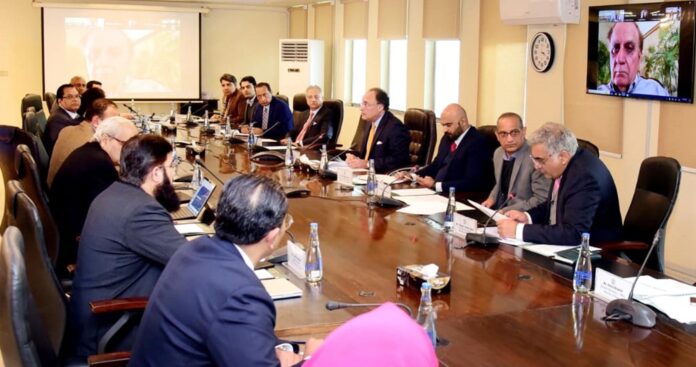Pakistan is preparing to launch a $250 million Green Impact Fund (GIF) to channel international climate financing toward green micro and small enterprises (MSMEs), aiming to address climate challenges and foster economic growth.
The proposal, developed by Karandaaz, a non-profit organisation funded by international donors, was discussed during a meeting of the Prime Minister’s Committee on Social Impact Financing, chaired by Finance Minister Muhammad Aurangzeb.
In its presentation, Karandaaz highlighted the global growth of impact investing, which has reached $1.571 trillion in assets under management, growing at an annual rate of 21% since 2019. The organisation proposed the establishment of a Green Impact Fund (GIF), a $250 million initiative aimed at financing green micro and small enterprises (MSMEs).
“This fund will provide concessional loans, equity with first-loss guarantees, and technical assistance, supported by global climate financing, commercial institutions, and donor funding,” the Ministry of Finance said.
Stakeholders from public and private sectors, including Akhuwat Foundation, Karandaaz, Pakistan Environment Trust, InfraZamin, and the Pakistan Microfinance Investment Company, participated alongside the Governor of the State Bank of Pakistan and other senior officials.
The discussion underscored the potential of such initiatives to foster economic growth, address climate challenges, and promote bottom-up development by creating jobs and empowering underserved communities.
The Ministry of Poverty Alleviation and Social Safety also provided insights into its ongoing initiatives within the social impact financing framework. These included the Benazir Income Support Programme (BISP); the Nashonuma initiative, supporting 2 million pregnant women and children under two with nutrition and stipends and the Kafalaat Program, offering cash transfers to 9.3 million women with a budget of Rs. 461 billion;
Likewise, under the National Poverty Graduation Program (NPGP), it transferred productive assets to 151,822 households, providing 252,012 interest-free loans and livelihood training; reported a 74.4% graduation rate out of extreme poverty, with a 30% increase in income.
Under Poverty Graduation of Extremely Poor and Flood-Affected Households (PGEP), a USD 134.2 million initiative providing livelihood assets, climate-smart agricultural technologies, and interest-free loans were provided while Pakistan Bait-ul-Mal Programs was managing shelter homes, women empowerment centers, and the Orphan and Widow Support Program.
The discussions also focused on strategic priorities for advancing social impact financing, including mobilizing philanthropic capital and global impact investments for underserved communities; developing a robust regulatory framework for social impact financing; expanding financial inclusion through innovative tools and blended financing models; Leveraging public-private partnerships to address climate change and promote sustainable development and enhancing resilience through targeted interventions for disaster-affected and climate-sensitive areas.
Meanwhile, the Finance Minister emphasized the need for a structured approach to measure the actual social impact of financial inclusion efforts. He remarked, “It is crucial to focus on the structuring, monitoring, and reporting of social impact outcomes to effectively gauge the results of our initiatives.”
The Minister also highlighted the importance of capacity building across all sectors and the creation of comprehensive dashboards for tracking progress. “While we are doing a commendable job in specific verticals, as a country, we must take a more holistic approach and scale up our efforts horizontally to ensure broader impact,” he added.
The Finance Minister urged all stakeholders to accelerate efforts in finalizing and operationalizing the proposed frameworks, ensuring that Pakistan’s goals for sustainable development, climate resilience, and poverty alleviation are realized.




